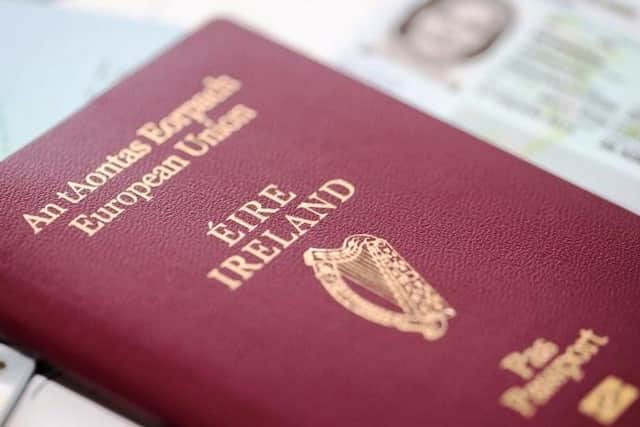Ben Lowry: Protestant population has fallen in Northern Ireland in part because they were early to secularism


The bid by Sion Mills Primary and a primary school near Omagh to change their status was the lead story on the BBC Northern Ireland website for a while. A link right underneath that lead story mentioned that the Education Authority planned two more Irish language post primary schools (a story from earlier this month about one such Irish school in Belfast and one in the west of NI).
This is a development that helps to explain some of the census data in which the Catholic population has for the first time in Northern Ireland outnumbered the Protestant one.
Advertisement
Hide AdAdvertisement
Hide AdThe overwhelming bulk of schools that have become integrated are formerly so-called Protestant schools. In fact they are not Protestant schools in the sense that Catholic schools are actually religiously based schools. They are mostly schools that either at their foundation had a Protestant origin or they are schools in which most of the pupils come from a Protestant cultural background.


Yet we talk of Catholic schools and Protestant schools in Northern Ireland because if we were to talk more accurately, of Catholic schools and non Catholic schools, that might be seen to be unfair on the former and to suggest that the blame for educational division only lies on one side of the tribal divide, the Catholic side.
As we report today, all but one of the dozens schools in Northern Ireland that have become integrated are ‘state’ schools, or schools that would, under the lazy terminology applied, have been ‘Protestant’ schools.
Then consider another aspect of this. Barely any commentators have dared to speak out against and Irish language act, or to express concern that the increase in Irish language schools will increase division in our society. This is because those of us who have expressed some concerns are immediately dismissed as sectarian.
Advertisement
Hide AdAdvertisement
Hide AdYet when Irish language school pupils were brought up to Stormont to protest against the lack of an Irish language act, such as in March 2017 or in February 2018, the most prominent political presence or political signage on display was that of Sinn Fein.
This reaffirmed the sense that the Irish language schooling sector is most likely to be found in an Irish republican culture, not merely an Irish nationalist one.
Meanwhile, for many years some schools in greater Belfast have been becoming integrated in reality, even if not formally designated as such.
The most religiously mixed such schools, with intakes of almost 50-50 Protestant-Catholic in a number of cases, tend to be grammars, and they tend to be middle class. They are atypical of wider society, but were the fore-runners in a trend that has been building for more than 50 years.
Advertisement
Hide AdAdvertisement
Hide AdWhen I was at school in the 1980s such mixing was well established but like many pupils I knew little about it. Why? Because like many people from a cultural Protestant background in greater Belfast I came from a family that rarely attended church and I did not know what Protestant or Catholic meant until I was approaching my teens.
It was only years later, in some cases after I left school, that I knew that numerous people who attended the ‘Protestant’ schools I was at were in fact of a Catholic background.
Protestants were far faster into secularism than Catholics.
Before the Troubles, the Loyalty Survey of 1968 found that Catholic weekly NI church attendance was around 95%, Anglican and Presbyterian was already under 50%.
Advertisement
Hide AdAdvertisement
Hide AdAttendances for all denominations have fallen sharply since then.
But this almost certainly explains why the number of Protestants is falling faster in NI each decade in the censuses than Catholics are rising. Protestants have been earlier to declare themselves neither.
There are other factors too, such as the greater tendency of people from a Protestant background to go to university in Great Britain and not return. But the earlier secularism among Protestants has clearly been a big part of the decline.
It might be that this begins to affect the Catholic numbers too, because the recent Catholic fall away from traditional church faith has been dramatic.
Advertisement
Hide AdAdvertisement
Hide AdIn any event there are other major factors in identity. I always thought that Brexit was perilous from a unionist perspective and it has clearly given the Irish identity a boost, and also led to more people getting Irish passports.
However unionists might be able to take hope from the fact that this is not as pronounced as it might have been.